Clarin 500 | Tablet | 10 pcs
৳ 400.00
Brand Name: Clarin Tablet
Generic: Clarithromycin
500 mg
Manufacturer: Drug International Ltd.
Unit Price: ৳ 40.00 (1 x 10: ৳ 400.00)
Indications
Clarithromycin is indicated in:
- Lower respiratory tract infection: acute and chronic bronchitis and pneumonia;
- Upper respiratory tract infection: sinusitis and pharyngitis, Community-acquired pneumonia, atypical pneumonia;
- Skin and soft tissue infection;
- Adjunct in the treatment of duodenal ulcers to eradicate of H. pylori
Therapeutic Class
Pharmacology
Clarithromycin acts by inhibiting microsomal protein synthesis in susceptible organisms mainly by binding to the donor site on the 50S sub- unit of the bacterial ribosome and preventing translocation to that site.
Clarithromycin is active against most Gram-positive bacteria and Chlamydia, some Gram-negative bacteria and Mycoplasmas.
Clarithromycin’s activity is the same as, or greater than, that of erythromycin in vitro against most Gram-positive bacteria. Clarithromycin is more acid stable than erythromycin and therefore, is better tolerated. Clarithromycin has twice the activity of erythromycin against H. influenzae. Most species of Gram-negative bacteria are resistant to clarithromycin because of failure to penetrate to the target.
Dosage
Adults:
- Pharyngitis/Tonsillitis: 250 mg for 10 days
- Acute maxillary sinusitis: 500 mg for 14 days
- Chronic bronchitis: 250 – 500 mg for 7-14 days
- Pneumonia: 250 mg for 7-14 days
- Uncomplicated skin and skin structure infections: 250 mg for 7-14 days
- Community-acquired upper and lower respiratory tract infections: 250 – 500 mg for 5-14 days
Children:
- Body weight under 8 kg: 7.5 mg/kg twice daily
- Body weight of 8-11 kg (1-2 years): 62.5 mg twice daily
- Body weight of 12-19 kg (3-6 years): 125 mg twice daily
- Body weight of 20-29 kg (7-9 years): 187.5 mg twice daily
- Body weight of 30-40 kg (10-12 years): 250 mg twice daily
Eradication of H. pylori in patients with duodenal ulcers:
- Triple Therapy: Clarithromycin (500mg) twice daily and lansoprazole 30mg twice daily should be given with amoxycillin 1000mg twice daily.
- Triple Therapy: Clarithromycin (500mg) twice daily and lansoprazole 30mg twice daily should be given with metronidazole 400mg twice daily.
- Triple Therapy: Clarithromycin (500mg) twice daily and omeprazole 40mg daily should be given with amoxycillin 1000mg twice daily or metronidazole 400mg twice daily.
- Triple Therapy: Clarithromycin (500mg) twice daily should be given with amoxycillin 1000mg twice daily and omeprazole 20mg daily.
- Dual Therapy: The usual dose of Clarithromycin is 500mg three times daily for 14 days.
Clarithromycin should be administered with oral omeprazole 40mg once daily. The pivotal study was conducted with omeprazole 40mg once daily for 28 days. Supportive studies have been conducted with omeprazole 40mg once daily for 14 days.
Administration
Interaction
Theophylline: Concomitant use of clarithromycin who are receiving theophylline may be associated with an increase in serum theophylline concentrations.
Terfenadine: Clarithromycin may alter the metabolism of terfenadine.
Carbamazepine: Clarithromycin may increase area under the serum concentration-time curve (AUC) for carbamazepine and decreased peak serum concentration and AUC for carbamazepine.
Contraindications
Side Effects
Pregnancy & Lactation
Precautions & Warnings
Caution should be taken in administering this antibiotic to patients with impaired hepatic and renal function. Prolonged or repeated use of Clarithromycin may result in an overgrowth of nonsusceptible bacteria or fungi. If superinfection occurs, Clarithromycin should be discontinued.
Pharmaceutical precaution Clarithromycin tablet should be stored in a cool and dry place and away from sunlight.
Use in Special Populations
Overdose Effects
Symptoms: Ingestion of large amounts of Clarithromycin can be expected to produce gastrointestinal symptoms. Symptoms of overdose may largely correspond to the profile of side effects.
Management: There is no specific antidote on overdose. Serum levels of Clarithromycin can not be reduced by haemodialysis or peritoneal dialysis.
Duration of Treatment
The usual duration of treatment is 6 to 14 days.
Children older than 12 years: As for adults.
Eradication of H. pylori in patients with duodenal ulcers: Adults: The usual duration of treatment is 6 to 14 days.
Reconstitution
Storage Conditions
| Generic Name | Clarithromycin |
|---|---|
| Size | 500 mg |
Only logged in customers who have purchased this product may leave a review.




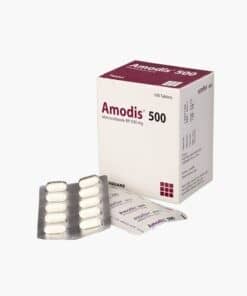
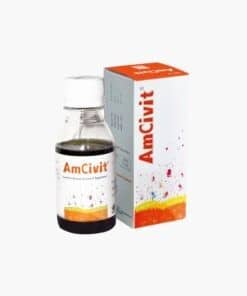
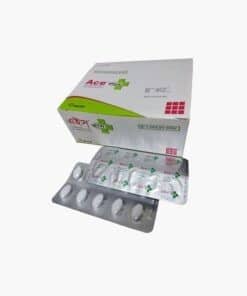
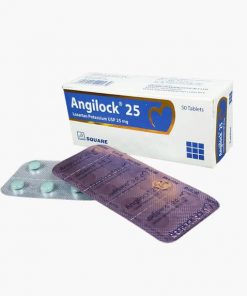
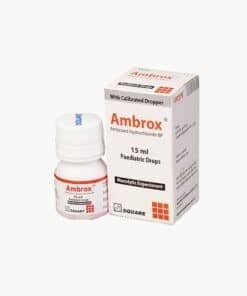
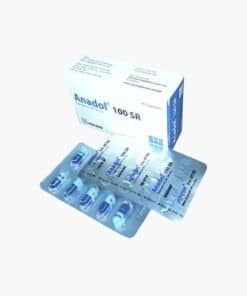

Reviews
There are no reviews yet.